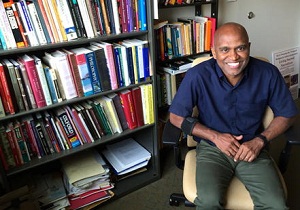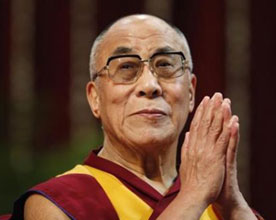By Lee Benson, Deseret News, Oct. 4 2015
TAYLORSVILLE, Utah (USA) -- When the Parliament of the World’s Religions convenes Oct. 15-19 at the Salt Palace, bringing some 10,000 attendees from 80 countries and 50 religions together under one roof, among the workshop presenters will be Wijitha Bandara, a former Buddhist monk from Sri Lanka, who is currently a professor of religion at Salt Lake Community College.
 Dr. Wijitha Bandara, a former Buddhist monk, now teaches religion at Salt Lake Community College. He will be a presenter at the Parliament of The World's Religions when it convenes in Salt Lake Oct. 15-19.
Dr. Wijitha Bandara, a former Buddhist monk, now teaches religion at Salt Lake Community College. He will be a presenter at the Parliament of The World's Religions when it convenes in Salt Lake Oct. 15-19.His topic: A Path Between Inclusivism and Exclusivism.
Layperson’s translation: How to teach religion to college students so they’ll actually pay attention, learn something and enjoy it.






